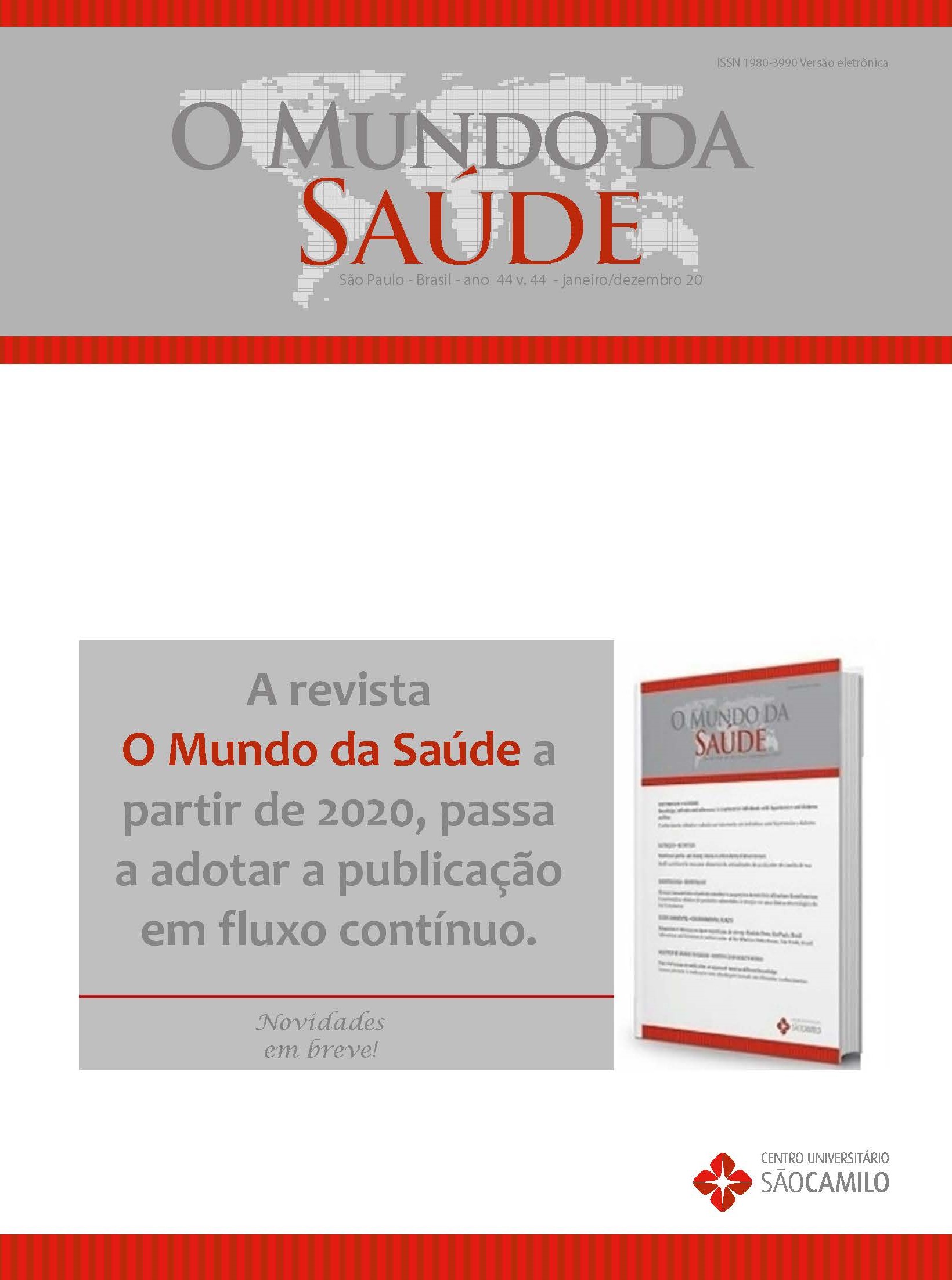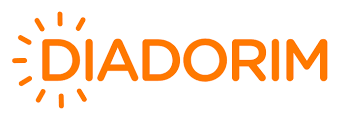Educação em Saúde à criança/adolescente/família: construção e validação de uma escala
DOI:
https://doi.org/10.15343/0104-7809.202044486497Palabras clave:
Promoção da Saúde, Educação em Saúde, Escalas, EnfermeirosResumen
A Educação em Saúde permite o desenvolvimento de comportamentos com capacidade de influenciar os determinantes
de uma vida saudável, nomeadamente a manutenção e melhoria do estado de saúde da criança/adolescente/família e,
por isso, a perceção da importância desta prática por quem a experiencia (enfermeiros e pais/família) poderá contribuir
fortemente para o seu sucesso. Assim, este estudo teve como objetivo construir e validar um instrumento de avaliação
da Educação em Saúde, realizada pelos enfermeiros voltados à criança/adolescente/família.Tratou-se de uma pesquisa
descritiva, transversal desenvolvida em duas fases: elaboração dos itens e sua associação às dimensões da escala com
recurso à revisão bibliográfica, a entrevistas exploratórias a enfermeiros e pais/família, análise por peritos (enfermeiros)
e posterior validação com recurso à análise fatorial exploratória. As qualidades psicométricas da escala foram avaliadas
por uma amostra de 603 indivíduos (enfermeiros e pais/família), sendo ainda realizados estudos de fiabilidade, validade
e consistência interna. Os resultados mostram uma análise fatorial exploratória que encontra três fatores: “parceria de
cuidados com a criança/adolescente/família”; “literacia em saúde”; “promoção de ambiente e comportamentos saudáveis
em saúde” com 48 itens. Alta correlação item-fator (≥0,70); Alfa de Cronbach total=0,987; Kaiser-Meyer-Olkin=0,987;
Significância estatística no teste de esfericidade de Bartlett (p<0,001). A variância total explicada foi 65,7%. Podemos
concluir que o instrumento de avaliação da Educação em Saúde à criança/adolescente/família, além de responder aos
requisitos de validade, apresenta resultados positivos para a sua utilização na avaliação da Educação em Saúde realizada
à criança/adolescente/família.
Descargas
Citas
Contexto Enferm. 2020; 29:20180250. Disponível em https://dx.doi.org/10.1590/1980-265X-TCE-2018-0250. Acesso em Feb 2020.
2 - Santos MP, Farre AGMC, Bispo MS, Sousa LB, Marinho DDT. Promoting adolescent sexual and reproductive health: peer education.
Rev Baiana Enferm. 2017; 31(3):e21505. Disponível em: http://dx.doi.org/10.18471/rbe.v31i3.21505. Acesso em Feb 2020.
3 - Silva FB, Gondim EC, Henrique NCP, Fonseca LMM, Mello DF. Educational intervention involving young mothers: gaining knowledge
on childcare. Acta Paul Enferm. 2018; 31(1):32-38. Disponível em: http://dx.doi.org/10.1590/1982-0194201800006. Acesso em Mar
2020.
4 - Figueira ALG, Gomes-Villas Boas LC, Coelho ACM, Foss-Freitas MC, Pace AE. Educational interventions for knowledge on the
disease, treatment adherence and control of diabetes mellitus. Rev Latino-Am Enfermagem. 2017; 25:e2863. Disponível em: http://
dx.doi.org/10.1590/1518-8345.1648.2863. Acesso em Abr 2020.
5 - Palmeira CS, Mussi FC, Ramos GA, Jesus NV, Macedo TTS, Dal Sasso GTM. Nursing protocol for remote monitoring of women with
excessive weight. Texto Contexto Enferm. 2019; 28:e20170400. Disponível em: http://dx.doi.org/10.1590/1980-265X-TCE-2017-0400.
Acesso em Feb 2020.
6 - International Council of Nurses. International council of nurses joins CEPPs global initiative to improve early childhood development.
2018. Disponível em: https://www.icn.ch/news/international-council-nurses-joins-cepps-global-initiative-improve-early-childhooddevelopment.
Acesso em Feb 2020.
7 - Silva EM, Silva D, Aparício G, Bica I, Albuquerque C, Cunha M. Promotion of children’s mental health: nurses’ contributions. ActaPaul Enferm. 2020; eAPE20180254. Disponível em: http://dx.doi.org/10.37689/acta-ape/2020AO0254. Acesso em Set 2020.
7 - Barreto ACO, Rebouças CBA, Aguiar MIF, Barbosa RB, Rocha SR, Cordeiro LM, Melo KM, Freitas RWJF. Perception of the Primary Care
multiprofessional team on health education. Rev Bras Enferm. 2018; 72(1):278-285. Disponível em: http://dx.doi.org/10.1590/0034-
7167-2017-0702. Acesso em Feb 2020.
8 - Durand MK, Heidemann ITSB. Social determinants of a Quilombola Community and its interface with Health Promotion. Rev Esc
Enferm USP. 2019; 53:e03451. Disponível em: http://dx.doi.org/10.1590/s1980-220x2018007703451. Acesso em Feb 2020.
9 - Netto L, Silva KL. Reflective practice and the development of competencies for health promotion in nurses’ training. Rev Esc Enferm
USP, 2018; 52:e03383. Disponível em: http://dx.doi.org/10.1590/S1980-220X2017034303383. Acesso em Feb 2020.
10 - Moura TNB, Moreira TMM, Sousa AD, Santos Neto AC, Sousa RX, Lima LHO. Development and validation of a smartphone
educational game regarding healthy lifestyle habits for adolescents. Texto Contexto Enferm. 2019; 28:e20180252. Disponível em:
http://dx.doi.org/10.1590/1980-265X-TCE-2018-0252. Acesso em Feb 2020.
11 - De Bortoli PS, Jacob E, Castral TC, Santos CB, Fernandes AM, Nascimento LC. Cross-cultural adaptation of the adolescente
pediatric pain tool for brazilian children and adolescents with cancer. Texto Contexto Enferm. 2019; 28:e20160108. Disponível em:
http://dx.doi.org/10.1590/1980-265X-TCE-2016-0108. Acesso em Feb 2020.
12 - Miranda FBG, Mazzo A, Pereira-Junior GA. Construction and validation of competency frameworks for the training of nurses in
emergencies. Rev Latino-Am Enferm. 2018; 26:e3061. Disponível em: http://dx.doi.org/10.1590/1518-8345.2631-3061. Acesso em
Feb 2020.
13 - Fabri RP, Mazzo A, Martins JCA, Fonseca AS, Pedersoli CE, Miranda FBG, et al. Development of a theoretical-practical script for
clinical simulation. Rev Esc Enferm USP. 2017; 51:e03218. Disponível em: http://dx.doi.org/10.1590/S1980-220X2016016403218.
Acesso em Feb 2020.
14 - Pires SMP, Monteiro SOM, Pereira AMS, Stocker JNM, Chaló DM, Melo EMOP. Non-technical skills assessment scale in nursing:
construction, development and validation. Rev Latino-Am Enferm. 2018; 26:e3042. Disponível em: http://dx.doi.org/10.1590/1518-
8345.2383.3042. Acesso em Feb 2020.
15 - Neves T, Rodrigues V, Graveto J, Parreira P. Scale of adverse events associated to nursing practices: a psychometric study in
Portuguese hospital context. Rev Latino-Am Enferm. 2018; 26:e3093. Disponível em: http:dx.doi.org/10.1590/1518-8345.2595.3093.
Acesso em Feb 2020.16 - Echevarria-Guanilo ME, Gonçalves N, Romaniski PJ. Psychometric properties of measurement instruments: conceptual basis and
evaluation methods - part II. Texto Contexto Enferm. 2019; 28:e20170311. Disponível em: http://dx.doi.org/10.1590/1980-265Xtce-
2017-0311. Acesso em Feb 2020.
17 - Morais SCRV, Nunes JGP, Lasater K, Barros ALBL, Carvalho EC. Reliability and validity of the Lasater Clinical Judgment Rubric -
Brazilian Version. Acta Paul Enferm. 2018; 31(3):265-271. Disponível em: http://dx.doi.org/10.1590/1982-0194201800038. Acesso
em Feb 2020.
18 - Montejano-Lozoya R, Gea-Caballero V, Miguel-Montoya I, Juárez-Vela R, Sanjuán-Quiles A, Ferrer-Ferrandiz E. Validation of
a questionnaire designed to measure nursing student satisfaction with practical training. Rev Latino-Am Enferm. 2019; 27:e3206.
Disponível em: http://dx.doi.org/10.1590/1518-8345.3102.3206. Acesso em Feb 2020.
19 - Ferreira, Lorena et al. Validation of the logical model of implementation of the ongoing education in Health Policy in Primary Health
Care. Trabalho, Educação Saúde. 2020; 18(2):e0026294. Disponível em: http://dx.doi.org/10.1590/1981-7746-sol00262. Acesso em
Set 2020.
20 - World Health Organization. Health 2020: a European policy framework supporting action across government and society for health
and well-being. 2013. Disponível em: http://www.euro.who.int/en/publications/abstracts/health-2020-a-european-policy-frameworksupporting-
action-across-government-and-society-for-health-and-well-being. Acesso em Feb 2020.
21 - D’Agostini MM, Aredes NDA, Campbell SH, Fonseca LMM. Serious Game e-Baby Família: an educational technology for premature
infant care. Rev Bras Enferm. 2020; 73(4): e20190116. Disponível em: http://dx.doi.org/10.1590/0034-7167-2019-0116. Acesso em
Set 2020.
22 - Yakuwa MS, Neill S, Mello DF. Nursing strategies for child health surveillance. Rev Latino-Am Enferm. 2018; 26e3007. Disponível
em: http:dx.doi.org/10.1590/1518-8345.2434.3007. Acesso em Feb 2020.
23 - Usero-Pérez C, Jiménez-Rodríguez ML, González-Aguña A, González-Alonso V, Orbañanos-Peiro L, Santamaría-García JM, Gómez-
González JL. Validation of an evaluation instrument for responders in tactical casualty care simulations. Rev Latino-Am. Enferm. 2020;
28:e3251. Disponível em: http://dx.doi.org/10.1590/1518-8345.3052.3251. Acesso em Set 2020.
24 - Araujo Filho ACA, Silva AN, Ribeiro MGC, Rocha SS, Andrade EMLR, Nogueira LT. Evaluation of Primary Healthcare from the
perspective of child caregivers: an integrative review. Rev Esc Enferm USP. 2019; 53:e03527. Disponível em: http://dx.doi.org/10.1590/
S1980-220X2018030003527. Acesso em Feb 2020.
Descargas
Publicado
Cómo citar
Número
Sección
Licencia
Derechos de autor 2020 CC BY

Esta obra está bajo una licencia internacional Creative Commons Atribución 4.0.






























